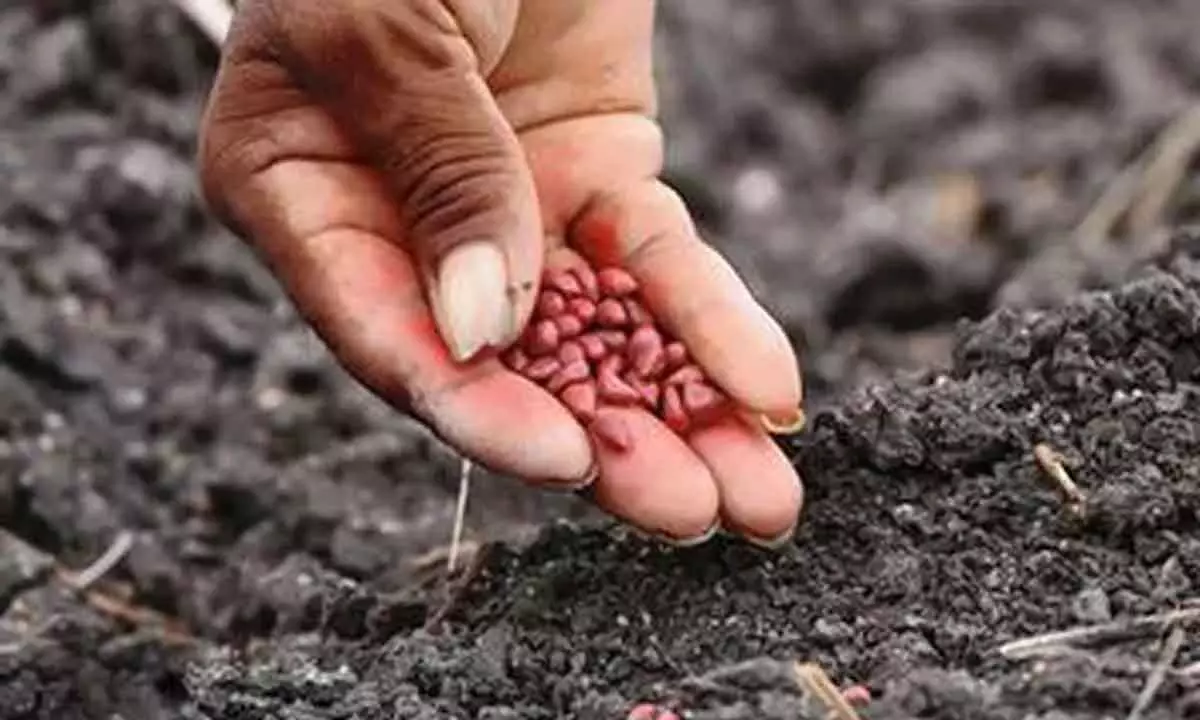Seed crisis is rooted in governments’ apathy

This election season, unusual serpentine queues are being witnessed all over the country. They are being formed by farmers, braving scorching temperatures, not to cast votes but to purchase cotton and other seeds across the country. Forecast of a good monsoon has farmers scrambling to kick off sowing operations. Cops are being called in, to control the surging crowds.
Ironically, the acute seeds shortage finds no takers in the bitterest elections to Lok Sabha, where politicos pick up everything under the sun to throw at their rivals. It has been the most acrimonious election the country has ever witnessed, heavily peppered with jibes and insults by both the opposition and the ruling fronts. One stark issue that is conspicuously absent in the vicious onslaught by the opposition has been farmers’ plight in the country. The Modi government, too, had little to boast of about its contributions to the welfare of the farming community. Incidentally, we saw farmers’ protests rage during the Modi regime over the contentious laws it proposed.
Amidst this disquieting scenario comes a spell, rather shower, of good news that there will be above-normal monsoon season this year. The monsoon season, so crucial for the economy, provides nearly 70 per cent of the rainfall that the country receives in a year. A good spell is needed not only to irrigate crops and replenish reservoirs and aquifers, but also provide drinking water to towns and cities.
Sadly, last year the monsoon rainfall hit a five-year low, marking the lowest since 2018 due to El Nino, a weather condition associated with weaker monsoon winds, dry weather, and harsher summers in India. This deprived irrigation for almost half of the farmland, sparking a sustained surge in the food inflation. August 2023 was the driest month in over a century, according to the India Meteorological Department (IMD).
Consequently, prices of food items kept soaring in the country. Worried about the political fallout in the General Elections, the government clamped restrictions on rice exports. Such an action by the world’s largest rice provider sent global prices hitting the roof. The country also prohibited onion exports for over six months, easing the ban only in respect of a few countries. It also imposed curbs on sugar exports. It also had to permit duty-free imports of pulses.
The Central government dithered while cotton seed producing states, such as Gujarat, Maharashtra, Telangana, Andhra Pradesh, Madhya Pradesh, Karnataka, Haryana, Rajasthan, saw reduced acreage. Experts had timely warned that India could be staring at a shortage of cotton seeds by as much as 40 per cent in 2024 season. Precipitating the situation, there were no surplus stocks either. The farmers are now paying for the governments’ apathy.
Isn’t the government unwittingly allowing a seed shortage to turn India into a food insecure nation? Even a common man understands that there is a need for an effective plan for the planting season. The government should have gone for import of seeds to replenish the dwindling stock, opine the experts. Otherwise, how else can India see a good harvest despite a bountiful monsoon? Whichever way is feasible, the most crucial task on the government hands is to ensure “FARMERS GET THE SEEDS” - in time and at subsidy in view of their losses due to poor monsoon last year. In Karnataka, the cost of sowing seeds has nearly doubled this year. Another worry that is troubling the hapless farmers is flood of fake seeds in the market. The loss of a crop despite good rainfall is indescribable for the poor farmers. The governments must at once ramp up quality controls, lab tests, seed certification and raids on unscrupulous traders. The time is running out.














